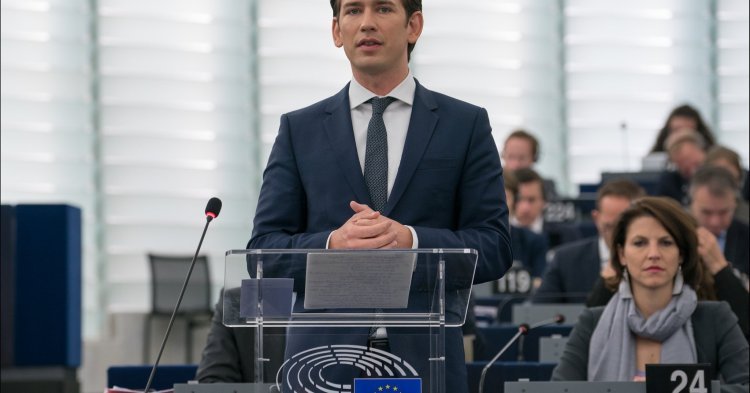Luca Arfini: What for you are the key values of the Austrian People’s Party and how do they align with those of the European People’s Party?
Sebastian Kurz: As a member of the EPP, the Austrian People’s Party is strongly rooted in the political family of the centre-right. The Austrian People’s Party defines itself as a centre-right political force with liberal, Christian-social and conservative origins. As a leading European political party, it does not just align with but also actively shape the EPP in its strong positioning by its values and its promotion of a sustainable social market economy.
Your political career has escalated quickly. You started being involved with the youth wing of the Austrian People’s Party while you were still in high school, then you became Austria’s youngest foreign minister at the age of 27 and currently, you are one of the youngest state leaders in the world. What do you believe is the key to your success? What is your suggestion to young people who want to influence decision making?
It has never been my main political aim to achieve many political mandates. Instead, I started my political career with the aspiration of being able to achieve something for the people. I have always enjoyed my responsibilities and functions which include countless contacts and appointments with different people. This social component is a major aspect of my job which I really appreciate. The key reason for taking office as Austrian Federal Chancellor at a relatively young age is due to the fact that I have never considered holding political office as just a job but always as a personal commitment.
Austria was one of the first countries in the European Union to lower the voting age to 16 at all levels. However, even though young people under 18 appear to be more likely to vote than the 18-21 age group, they are less likely to vote than the 30+ category. What do you think is needed to increase the engagement and the representation of the younger generations in national politics?
Young people are indeed an important target group for political mobilization especially when it comes to shaping the future issues of politics. However, based on my personal experience, I cannot confirm that young people are less interested in politics. They definitely prioritize different topics to those of the older generation – climate change, aspects of ecology, and digitalization are without doubt key issues for that age group – but political reality shows that young people are in large numbers active in politics, not only within the Austrian People’s Party but also in all other political parties in Austria.
According to the Eurobarometer survey last spring, 80% of Austrians declared that they feel like EU citizens. In light of this positive sentiment towards the European Union and your decision to govern together with the Austrian Green Party, how do you see the relationship between Austria and the EU in the next four years? Could Austria become a front runner in the fight against climate change?
Climate change is for sure one of the main challenges of our time and future generations. As the Austrian People’s Party, we are making great efforts to accelerate measures to protect our environment and climate. However, this can no longer be resolved on a national level alone. Climate change and questions of sustainability are global issues which have to be addressed by joint efforts. That is why we promote cooperation within the European Union on big questions like the fight against climate change or European border control. For smaller questions which can be solved more efficiently at national or regional levels, we support the idea of subsidiarity.
At the end of January, the European People’s Party voted to keep Mr Orban’s party, ‘Fidesz’, suspended from the political family indefinitely due to its undemocratic policy. What is your position on the matter?
It goes without saying that all EU member states have to adhere to European fundamental rights and the rule of law. The Article 7 procedure was rightly initiated to examine the situation in Hungary thoroughly and draw conclusions or take further steps as required. Regarding the status of Fidesz in EPP, its membership was suspended in March 2019. In February 2020 no new decision was taken on Fidesz with respect to the EPP body, as no majority would have endorsed such a step. We endorse EPP’s consensual approach in this regard.
The youth unemployment rate in Austria is already below the EU average. Do you believe it is still possible to further improve the current situation for young people entering the Austrian job market?
Austria´s youth unemployment rate is relatively low due to our highly successful dual education system. In order to further prevent youth employment and get people back to work, we constantly have to adapt to changes in the working environment and already take them into account in our education schemes. At the same time, we consistently have to enhance the attractiveness of our apprenticeship programs, for example by placing a stronger focus on digitalization.


Follow the comments: |
|
